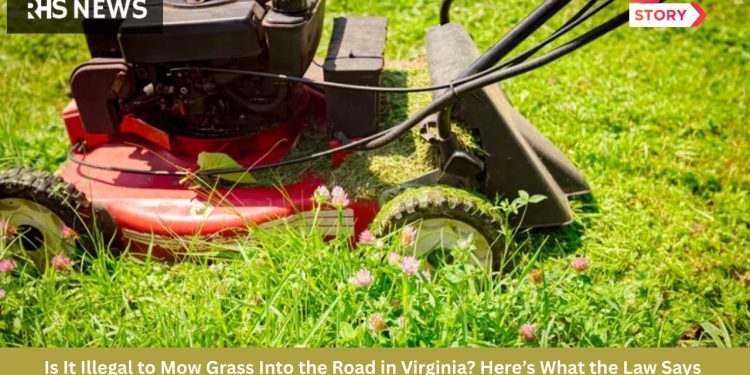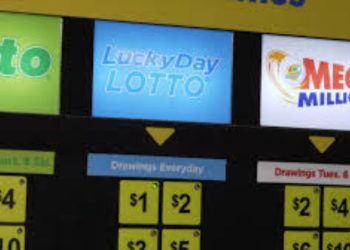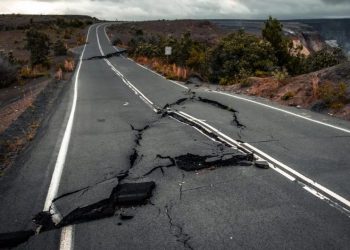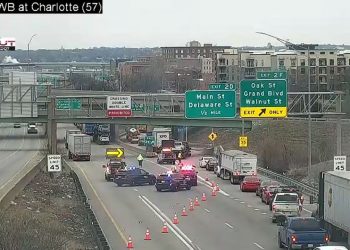Lawn care is a routine seasonal activity in Virginia, but did you know your mowing habits could land you in legal trouble? Whether you’re in Richmond, Virginia Beach, or the mountain towns of the Shenandoah Valley, how you dispose of grass clippings matters—not just for neighborhood tidiness but for road safety and compliance with the law. Many residents wonder: is it illegal to mow—or blow—grass clippings into the road in Virginia? This extensive guide covers the legislation, risks, penalties, and good practices, with local insights, statistics, and facts from across the Commonwealth.
Understanding Virginia’s Law on Grass Clippings in Public Roads
This Article Includes
- 1 Understanding Virginia’s Law on Grass Clippings in Public Roads
- 2 Legal Consequences for Mowing Grass into Virginia Roads
- 3 Why Grass Clippings on Roads Are Dangerous
- 4 Environmental Impact of Grass Clippings on Roadways
- 5 Responsibilities for Homeowners and Lawn Care Providers
- 6 Liability and Legal Recourse After Accidents
- 7 Preventive Measures and Community Initiatives
- 8 Practical Tips for Lawn Care in Virginia Cities and Suburbs
- 9 Conclusion
Virginia considers road safety paramount. The Code of Virginia, specifically Section 18.2-324, makes it a Class 1 misdemeanor to deposit any material on public roadways that can create a hazard for travelers. While the law does not mention grass clippings by name, it clearly prohibits tossing or blowing any substance that can endanger people or vehicles. Grass clippings, when accumulated on asphalt, qualify as a hazardous substance due to their impact on traction, especially for motorcycles and bicycles.
So, if your mowing sends green debris into the street in cities like Norfolk, Roanoke, or the suburbs of Fairfax County, you could be subject to this statute. The Virginia Department of Transportation (VDOT) and local police agencies routinely remind residents about this prohibition during spring and summer.
Legal Consequences for Mowing Grass into Virginia Roads
Violating Section 18.2-324 brings serious penalties. A Class 1 misdemeanor is the most severe category for misdemeanors in the state. Offenders could face up to 12 months of jail time, a fine as high as $2,500, or both. Additionally, counties and municipalities—such as Arlington, Richmond, and Chesapeake—may impose extra fines or penalties under local ordinances for dumping yard waste on roadways.
The law also holds lawn care companies and city workers accountable. If a landscaping team working in Williamsburg or municipal staff in Fredericksburg blow grass into public streets and it causes an accident, the city or business could be held liable.
Why Grass Clippings on Roads Are Dangerous
You might not consider grass clippings dangerous—after all, they biodegrade and seem harmless. However, studies and accident data reveal the hazards, especially for motorcyclists. Grass clippings create a slippery veneer, comparable to riding over ice, vastly reducing tire traction and increasing the risk of losing control.
Motorcyclists traveling scenic byways near Charlottesville or cyclists commuting in Alexandria face heightened dangers. When grass clippings get wet, the risk multiplies as the surface becomes even more slick. Emergency rooms in cities like Richmond and Virginia Beach have reported injuries attributed to motorcycle accidents involving grass-clipping hazards.
Across Virginia, especially in communities like Loudoun County and Prince William County, local residents and authorities regularly campaign to educate the public on these risks.
Environmental Impact of Grass Clippings on Roadways
Beyond safety, grass clippings on roads contribute to other problems. In urban areas like Richmond’s Fan District or downtown Norfolk, yard debris can clog storm drains, triggering localized flooding and requiring costly municipal repairs. When it ends up in rivers or streams during heavy rain, grass debris adds nutrient loads, negatively impacting water quality in the James River and Chesapeake Bay.
Statistics cited by Virginia’s major cities show that up to half of yard waste generated during peak growing season can consist of grass clippings. Mishandled, this material stresses local waste management systems and can incur extra costs for municipalities.
Responsibilities for Homeowners and Lawn Care Providers
If you reside in Virginia Beach or own a landscaping company in Lynchburg, responsibility for keeping clippings out of the street rests with you. Homeowners are required to maintain both their yards and the adjacent city right-of-way, extending up to the curb, but not to mow grasses in stormwater ditches, wetlands, or Chesapeake Bay protected areas. These rules intend to strike a balance between land care and public safety.
Best practices include collecting and bagging grass clippings and depositing them with regular yard waste. The City of Alexandria’s grasscycling campaign encourages residents to leave clippings on the lawn to recycle nutrients, reducing yard waste volume and benefiting soil health—provided it stays out of the street.
If you hire a landscaping company in places like Hampton or Newport News, ensure contractors agree to proper disposal procedures. Many municipalities issue fines if commercial operators fail to comply.
Liability and Legal Recourse After Accidents
If an accident occurs due to grass clippings—say a motorcyclist crashes in Roanoke or a cyclist falls in Arlington—the question of who’s responsible arises. Under Virginia law, negligence is determined by whether the person depositing clippings breached their duty of care and caused harm. The victim must prove that the clippings caused the accident, that the responsible party failed to take due care, and that this carelessness resulted in injury or damage.
Virginia’s strict contributory negligence rule means that if the injured party contributed even slightly to the accident (for example, speeding), they may be barred from recovering damages. So, legal battles often depend on details such as the motorcyclist’s speed or awareness.
High-profile cases in Fairfax and Richmond have resulted in serious penalties for those found guilty, underscoring the consequences and the importance of following the law.
Preventive Measures and Community Initiatives
Local governments across the Commonwealth—from Danville to Manassas—actively educate residents on safe lawn care practices. Announcements from police departments in places like Vinton remind citizens that leaving grass clippings on the road can be met with legal action.
Community groups and motorcycle clubs advocate for increased awareness, and some towns offer free disposal for yard waste to reduce the temptation for roadside dumping. Grasscycling programs in cities like Alexandria and Richmond encourage residents to recycle clippings by leaving them on the lawn, not in the street.
Cities such as Hampton and Virginia Beach enforce strict height limits for grass and encourage residents to maintain grass on city rights-of-way, but always require safe disposal.
Practical Tips for Lawn Care in Virginia Cities and Suburbs
To stay compliant and keep communities safe, consider these best practices for mowing in Virginia:
-
Always mow with the discharge chute facing away from the road. If clippings land on the sidewalk or street in cities like Portsmouth or Roanoke, sweep or collect them immediately.
-
Bag clippings and deposit them with yard waste collections in municipalities like Chesterfield County.
-
Use mulching mowers that recycle clippings back into the lawn for sustainable landscaping.
-
Talk to your Homeowners Association (HOA) in suburbs like Ashburn, which often have their own rules about yard waste disposal.
-
Educate neighbors or customers about risks when providing lawn care services.
Conclusion
Across Virginia—from the hills of Blacksburg to the coastal communities of Virginia Beach—it is illegal to blow or mow grass clippings onto public roads. The law aims to keep every road user safe, prevent environmental harm, and cut down on costly maintenance. Violators face stiff penalties, and consistent enforcement efforts reach across rural, urban, and suburban communities.
So, next time you mow, remember that grass clippings belong on the lawn or in waste collection—not scattered across streets. It’s not just a matter of neighborhood pride; it’s the law. And following it will help keep Virginia’s roads—and everyone who travels them—safe.
- https://wset.com/news/local/is-it-illegal-to-leave-grass-clippings-on-virginia-roads-hazard-traveling-public-may-2023
- https://www.vdot.virginia.gov/media/vdotvirginiagov/doing-business/technical-guidance-and-support/land-use-and-development/fairfax-permits/Mowing_in_State_Right_of_Way_Guidelines.pdf
- https://www.richmondinjurylawfirm.com/is-it-illegal-to-leave-grass-clippings-in-the-road-in-virginia-heres-what-motorcyclists-need-to-know/
- https://law.lis.virginia.gov/vacode/title53.1/chapter2/section53.1-56/
- https://www.reddit.com/r/motorcycles/comments/16f87v7/grass_clippings_in_the_road_how_bad_of_a_hazard/
- https://www.better-lawn-care.com/blog/is-it-illegal-to-blow-grass-into-the-street/
- https://transportation.wv.gov/communications/PressRelease/Pages/Motorcyclist_Safety_Is_Everyones_Safety.aspx
- https://www.hampton.gov/3496/Grass-cutting
- https://www.avvo.com/legal-answers/is-it-illegal-to-leave-yard-waste-grass-clippings–5809673.html
- https://www.alexandriava.gov/waste/grasscycling










